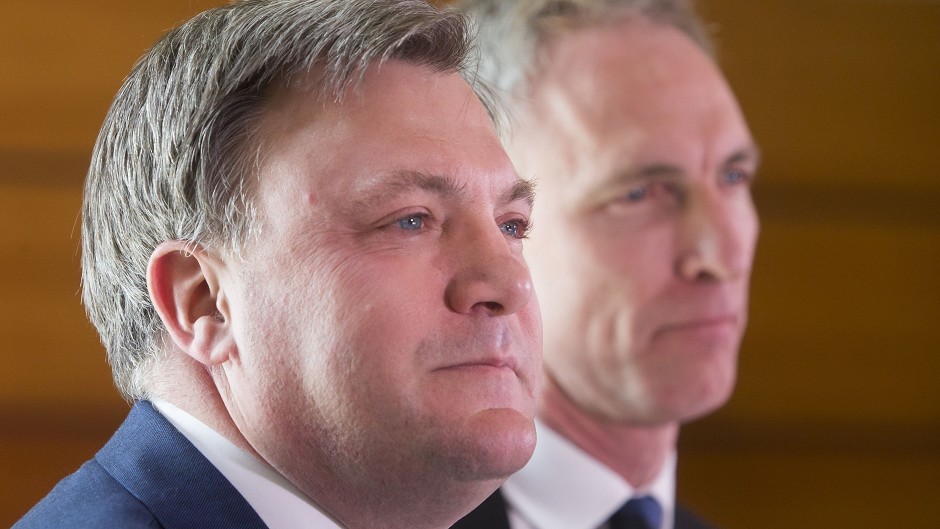Jim Murphy has insisted he and Ed Balls are “singing from the same hymn sheet” on Labour’s spending plans.
The Scottish Labour leader was forced to defend his campaign after opposition leaders claimed he had been “hung out to dry” by the shadow chancellor’s refusal to exempt Scotland from spending cuts.
During a visit to Cumbernauld yesterday, Mr Murphy denied the fiscal responsible message set out by Ed Miliband at the UK party manifesto launch had undermined the Scottish campaign.
“The Tories want to cut public spending ever deeper and the SNP want to cut Scotland off from the rest of the UK when it comes to pooling and sharing resources and taxes,” he said.
“There’s a different way of doing it, which is balance the books through targeted savings that are fairer and then continued economic growth.
“Ed Balls and I last week were out campaigning together and we’re singing from the same hymn sheet on this.”
Mr Murphy said savings could be achieved through cutting winter fuel allowance for the wealthiest pensioners, capping child benefit rises for two years, and restoring the 50p top rate of income tax.
The Scottish Labour leader insisted he and Mr Balls were clear that saving had to be made and the books balanced.
“It isn’t all about cuts, it’s just a different approach to how we run our economy, which is we want more people out earning decent wages, paying taxes rather than subsidising low pay and that’s a much more effective way of having economic growth,” he said.
Mr Murphy said the SNP’s demand for full fiscal autonomy – where Holyrood raises all the money is spends – will result in a £7.6billion deficit in the Scottish budget through the loss of the UK block grant.
“Scotland succeeds when working families succeed, but the SNP’s reckless plans will cost working families the most, with a £7.6billion black hole in Scotland’s finances and the end of the UK welfare state as we know it,” he said.
“Five years of Tory austerity have been brutal on Scotland’s working families, the last thing they need is more austerity, but that is exactly what full fiscal autonomy would mean.”
